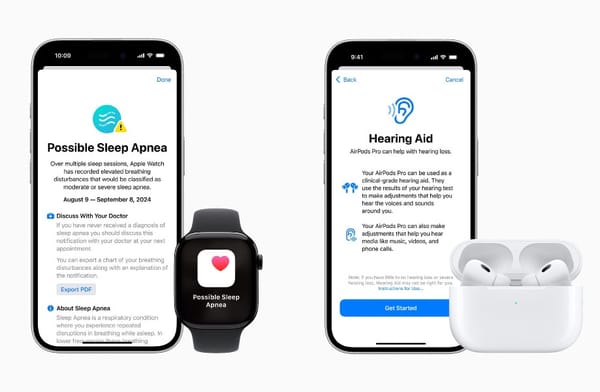Artificial intelligence (AI) and machine learning (ML) are emerging as powerful tools for promoting positive behavior change. These technologies are transforming the way we approach health interventions, offering personalized, data-driven solutions that can adapt to individual needs and preferences. As researchers and developers continue to explore the potential of AI and ML in digital behavior change interventions (DBCIs), we're witnessing a paradigm shift in how we address health challenges and promote wellness.
Key Takeaways
• AI and ML are revolutionizing digital behavior change interventions
• Personalization and adaptability are key advantages of AI-driven DBCIs
• Challenges include data privacy, ethical considerations, and integration with existing healthcare systems
• Future applications may include more sophisticated predictive models and real-time interventions
The Role of AI and ML in Digital Behavior Change
Personalization at Scale
One of the most significant advantages of incorporating AI and ML into DBCIs is the ability to deliver highly personalized interventions. These technologies can analyze vast amounts of user data, including behavioral patterns, preferences, and health metrics, to tailor interventions to individual needs. This level of personalization was previously impossible to achieve at scale, but AI and ML have made it a reality.
For example, an AI-powered smoking cessation app might analyze a user's smoking habits, triggers, and previous quit attempts to provide customized strategies and support. The app could adapt its approach based on the user's progress, offering more intensive support during challenging periods or adjusting goals as needed.
Predictive Analytics and Early Intervention
AI and ML algorithms excel at identifying patterns and making predictions based on large datasets. In the context of DBCIs, this capability can be used to predict potential health risks or behavioral relapses before they occur. By analyzing factors such as lifestyle habits, physiological data, and environmental influences, these systems can alert users and healthcare providers to potential issues, enabling early intervention.
Consider a diabetes management app that uses ML to predict blood sugar fluctuations based on a user's diet, activity levels, and medication adherence. The app could proactively suggest adjustments to prevent dangerous spikes or drops in blood sugar, potentially averting serious health complications.
Adaptive Interventions
Traditional behavior change interventions often follow a one-size-fits-all approach or rely on predefined rules. AI and ML enable the development of adaptive interventions that can evolve based on user responses and outcomes. These dynamic systems can continuously learn from user interactions and adjust their strategies to optimize effectiveness.
For instance, a mental health app might use natural language processing to analyze a user's mood based on their journal entries or chat interactions. The app could then adapt its therapeutic approach, suggesting different coping strategies or exercises based on the user's current emotional state and past responses to various interventions.
Challenges and Ethical Considerations
While the potential of AI and ML in DBCIs is immense, several challenges and ethical considerations must be addressed:
Data Privacy and Security
The effectiveness of AI and ML-driven interventions relies heavily on access to personal health data. Ensuring the privacy and security of this sensitive information is paramount. Developers and healthcare providers must implement robust data protection measures and adhere to strict ethical guidelines to maintain user trust and comply with regulations.
Algorithmic Bias
AI and ML systems are only as unbiased as the data they're trained on. There's a risk of perpetuating or exacerbating health disparities if these systems are trained on non-representative datasets. It's crucial to ensure that AI-driven DBCIs are developed and tested using diverse, inclusive data to avoid biased outcomes.
Integration with Existing Healthcare Systems
For AI and ML-powered DBCIs to reach their full potential, they need to be seamlessly integrated with existing healthcare systems. This integration presents technical challenges, such as ensuring interoperability with electronic health records, as well as cultural challenges in terms of acceptance by healthcare professionals and patients.
The Future of AI and ML in Digital Health Behavior
As technology continues to advance, we can expect to see even more sophisticated applications of AI and ML in DBCIs. Some potential future developments include:
• Real-time Interventions: Wearable devices and IoT sensors could provide continuous data streams, allowing AI systems to deliver interventions at the most opportune moments.
• Multi-modal Interventions: AI could coordinate interventions across multiple platforms and modalities, creating a more holistic approach to behavior change.
• Advanced Natural Language Processing: Improved NLP could enable more natural and empathetic interactions between users and AI-powered health assistants.
Conclusion
AI and ML are poised to revolutionize digital behavior change interventions, offering unprecedented levels of personalization, adaptability, and predictive power. As these technologies continue to evolve, they have the potential to significantly improve health outcomes and empower individuals to take control of their well-being. However, it's crucial that we address the ethical and practical challenges associated with these technologies to ensure their responsible and effective implementation.
Stay informed
Stay informed about the latest developments in AI and ML-driven digital health interventions. Consider participating in research studies or trials of AI-powered health apps to contribute to the advancement of these technologies and potentially benefit from cutting-edge health solutions.
References:
- Nahum-Shani, I., Smith, S. N., Spring, B. J., Collins, L. M., Witkiewitz, K., Tewari, A., & Murphy, S. A. (2018). Just-in-Time Adaptive Interventions (JITAIs) in Mobile Health: Key Components and Design Principles for Ongoing Health Behavior Support. Annals of Behavioral Medicine, 52(6), 446-462.
- Fagherazzi, G., Ravaud, P. (2019). Digital diabetes: Perspectives for diabetes prevention, management and research. Diabetes & Metabolism, 45(4), 322-329.
- Yardley, L., Spring, B. J., Riper, H., Morrison, L. G., Crane, D. H., Curtis, K., ... & Blandford, A. (2016). Understanding and Promoting Effective Engagement With Digital Behavior Change Interventions. American Journal of Preventive Medicine, 51(5), 833-842.
- Nebeker, C., Torous, J., & Bartlett Ellis, R. J. (2019). Building the case for actionable ethics in digital health research supported by artificial intelligence. BMC Medicine, 17(1), 137.
- Gianfrancesco, M. A., Tamang, S., Yazdany, J., & Schmajuk, G. (2018). Potential Biases in Machine Learning Algorithms Using Electronic Health Record Data. JAMA Internal Medicine, 178(11), 1544-1547.
- Shaw, J., Rudzicz, F., Jamieson, T., & Goldfarb, A. (2019). Artificial Intelligence and the Implementation Challenge. Journal of Medical Internet Research, 21(7), e13659.















Member discussion